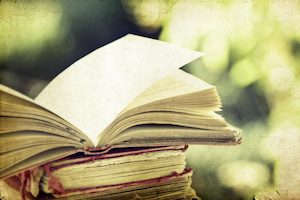 “Geez. How can you write a whole book?”
“Geez. How can you write a whole book?”
I get asked that a lot. Most people see a book as an extended homework assignment or some written report to humanity that has to be done before they take the dirt nap. It’s always presented, from those people who ask, as an obligation—as some onerous task that one has to suffer through and pour their heart out to the point of pain.
I must confess—that was me. I was never a big fan of writing. I was never a big fan of composition, grammar, or spelling. I guess it’s because of the inverted nature of education. I once was involved in a project that wanted to flip the paradigm, to not teach the rules first, not insist on structure, but instead stimulate the imagination, delve into concepts, force a different point of view, then worry about the rules later.
Nowadays I know that these “rules” are why God invented editors, but we didn’t have those in school. So, unless you were a natural, like Rosemary, the girl in my third-grade class that wrote multiple pages with ease and then stood up and read with the greatest of expression, creative writing and expression eluded you. Maybe that’s the reason I always wanted to throw a spitball at her.
Then, something happens. I don’t know if it’s puberty, I don’t know if you get hit on the head by an apple (or a PC), but suddenly a new law of nature emerges. You start to understand that something is inside, a restlessness that may only emerge in a dream, a point of view that may crystallize at those rare unguarded moments when you’re in direct contact with everything within. Your secret thoughts that you spend most of the day keeping back, keeping inside, for fear that others will deem you odd for dabbling in.
Eventually, some catalytic element, an epiphanal moment, pushes you to write… to pick up a pencil, to open a new file or grab a crayon. And all of a sudden, the words start flowing. To your amazement, it’s not a painful process at all. In fact, it’s quite pleasurable, like other bodily releases in the human function, it’s almost orgasmic. You start to expand. You start to gauge your own sense of self by the flow, the volume, and the energy that’s coming from the words that you are finally committing to paper, or a computer screen, or the back of an envelope. Pure intoxication—without the guilt.
And then it hits you—this ain’t all that bad! This is actually a good thing.
If you’re lucky, like I feel I have been, the process becomes dreamlike. Your episodes of writing start to become that elusive dream that, once you were awakened from it, was always hard to get back to. Except that now your last period brings you right back to that point, and you can rejoin that world. You can enjoy the good and the bad characters. And you can live, create, experience, edit, rewind, and shuffle that life experience in a way you can’t do in the waking, non-writing world.
So, writing becomes the dream. And not writing becomes a dream, interrupted. In this ironic flip-flop, not writing becomes the onerous task. After that writing rush, ordinary life, walking into a meeting, boarding a train, sitting at dinner and not being able to backspace to change the last word said, or sentence, the setting, the order, or the subtext of the words that these people are saying starts to become the frustration of living. You yearn for the dream vacation of writing.
You may now feel free to fire a spitball at me. For I have become Rosemary.
 Tom Avitabile is a senior v.p. in advertising, as well as a writer, director, and producer with numerous film and television credits. His recent trilogy of novels chronicle the exploits of Science Advisor to the President “Wild” Bill Hiccock. The first of this series, The Eighth Day, became a Barnes and Noble #1 bestseller. His latest hardcover novel, Give Us This Day, also became a number-one bestseller.
Tom Avitabile is a senior v.p. in advertising, as well as a writer, director, and producer with numerous film and television credits. His recent trilogy of novels chronicle the exploits of Science Advisor to the President “Wild” Bill Hiccock. The first of this series, The Eighth Day, became a Barnes and Noble #1 bestseller. His latest hardcover novel, Give Us This Day, also became a number-one bestseller.
